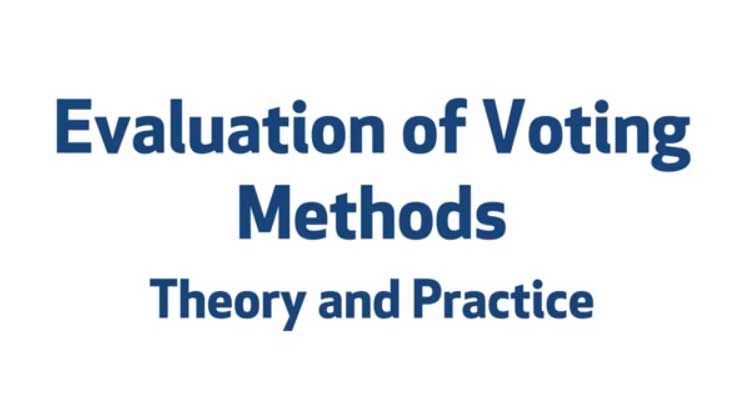 This article by David McCune and Adam Graham-Squire is published by ProMarket. Here is an extract:
This article by David McCune and Adam Graham-Squire is published by ProMarket. Here is an extract:
Should more cities and states adopt ranked choice voting (RCV) for municipal and state elections? Is RCV a “good” way to select election winners? These questions are not easily resolved, as the answer depends on what one wants from a voting method and whether a method’s benefits outweigh its downsides (all voting methods seemingly have downsides). Furthermore, the study of how best to select election winners is decidedly interdisciplinary, involving tools from political science, economics, mathematics, and psychology, among others. As mathematicians, we approach these questions by examining how frequently RCV’s deficiencies manifest in actual elections, where we focus on deficiencies which have historically been of interest in the mathematically oriented social choice literature.
How does RCV work? Voters cast a preference ballot where they rank candidates from first to last. If a candidate receives a majority of first-place preferences, that candidate is declared the winner. Otherwise, the voting process eliminates the candidate with the fewest first-place votes. Ballots that ranked the eliminated candidate first are then reallocated to the candidates they ranked second (or, if the candidate ranked second has previously been eliminated, are reallocated to the third candidate, etc.). The process continues in this fashion until a candidate has earned a majority of the remaining votes. RCV is commonly referred to as “instant runoff voting” because it uses preference ballots to instantaneously mimic the outcomes of potential future runoff elections, thereby saving the jurisdiction the cost and time of holding such runoffs.
To illustrate this process, consider the table below, which contains the preference ballot information for the August 2022 Special Election for the U.S. House in Alaska. This election was the first ranked choice election for state or federal office in the state. Neglecting write-in candidates, this election contained three candidates: Republicans Nick Begich and Sarah Palin and Democrat Mary Peltola.
Read the full article here.
Leave a Reply